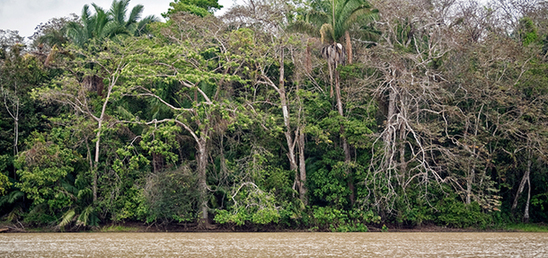Panama resumes efforts to cut emissions
 0 Comment(s)
0 Comment(s) Print
Print E-mail China.org.cn, December 16, 2013
E-mail China.org.cn, December 16, 2013
Efforts to reduce emissions of carbon dioxide from deforestation and forest degradation will resume in Panama early next year, following agreement between the government and indigenous peoples to strengthen the role of indigenous communities in managing forest resources, in the context of the UN-REDD Joint National programme.
 |
The programme was suspended in March 2013, following complaints by the National Coordinating Body of Indigenous Peoples in Panama (COONAPIP) that it did not show sufficient consideration to the rights of indigenous communities.
UN-REDD launched an independent investigation and evaluation of the programme in response. Consultations among the government of Panama's National Environment Authority (ANAM), COONAPIP technical advisors and the UN resulted in a revised results framework for the UN-REDD programme in Panama, which was endorsed by the General Assembly of COONAPIP at the end of November 2013.
The UN-REDD Joint National Programme in Panama was extended to June 2015 at the Eleventh Meeting of the UN-REDD Programme Policy Board, which took place in Geneva, from 9-10 December.
"We feel satisfied that the process followed with ANAM will help us to correct issues, and COONAPIP is going to engage again in the Programme," said Candido Mezua, President of COONAPIP.
"It is time to trust again," he added.
Mezua further emphasized that REDD+ had to be conducted with full respect for the rights of indigenous peoples, asking for the support of UN agencies to ensure that rights such as free, prior and informed consent are respected and appropriate grievance mechanisms are made available for indigenous peoples.
He further underscored the complexities of REDD+ and offered COONAPIP's contribution to national REDD+ efforts. "This process has taught us something: we better understand the perspectives of indigenous peoples," stated Gerardo Gonzalez, Director of Basins at ANAM.
"Their participation is now guaranteed and we know they are main protectors of the forest."
The UN-REDD Programme Policy Board - comprised of representatives of partner countries, indigenous peoples, civil society, donor countries and UN agencies - commended the efforts by stakeholders in Panama to resolve the issue and emphasized the value and importance of strong stakeholder engagement processes in all UN-REDD countries.
(UNEP contributed to the story)






Go to Forum >>0 Comment(s)